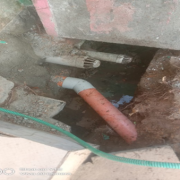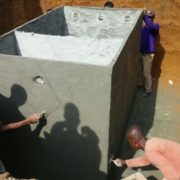Les programmes d’assainissement souterrain : l’expérience de Tamil Nadu
Pour répondre aux exigences d’une urbanisation rapide, le gouvernement de Tamil Nadu (GoTN) a mis la priorité sur la mise en œuvre de programmes d’assainissement souterrain (PAS) dans toutes les collectivités locales urbaines (CLU) qui en ont besoin, à travers différents programmes financiers, et ce de manière progressive. Le gouvernement du Tamil Nadu s’est efforcé d’atteindre le « dernier kilomètre » avec un assainissement et une hygiène adéquate et équitable dans les CLU de Tamil Nadu. Le présent article vise à mieux faire comprendre les facteurs sous-jacents et les initiatives prises par le gouvernement de Tamil Nadu pour assurer la connectivité du PAS au dernier kilomètre au sein de l’État.
En effet, dans un État comme Tamil Nadu (TN), l’assainissement est essentiel pour améliorer la qualité de vie, la santé et la productivité. À cet égard, le gouvernement de Tamil Nadu a pris des initiatives pour la mise en œuvre du PAS et la gestion des boues de vidange (GBV) de manière progressive afin d’atteindre le dernier kilomètre avec un assainissement adéquat dans les CLU de Tamil Nadu, principalement déclinées en trois étapes et détaillées dans l’article complet ci-joint : i) de 2000 à 2008 ; ii) de 2008 à 2017 ; iii) de 2018 à aujourd’hui.
En dehors des initiatives de soutien financier aux ménages, des programmes d’information, d’éducation et de communication (IEC) ont également été menés dans différentes parties de l’État afin d’éduquer les ménages à se raccorder pour éviter l’évacuation directe des eaux usées dans les égouts pluviaux ou sur les terres avoisinantes.
Pour les CLU qui ne sont pas couverts par le programme de mise en œuvre du PAS, un plan distinct a été préparé sur la gestion de l’assainissement en toute sécurité au sein de l’État. La chronologie du cadre juridique et réglementaire lié aux initiatives GBV est déclinée dans l’article complet disponible ici.
L’utilisation de dépôts pour les raccordements aux réseaux d’approvisionnement en eau et d’assainissement, de prêts sans intérêt et de taxes à Tamil Nadu suggère que la durabilité à long terme des systèmes d’assainissement peut être obtenue grâce à un engagement politique, à une évaluation efficace des projets et à la participation des citoyens. Les efforts déployés par le gouvernement de Tamil Nadu sur la connectivité du dernier kilomètre au PAS peuvent être pris comme référence par d’autres États pour améliorer le dernier kilomètre avec un assainissement inclusif. Le principal enseignement tiré de la mise en œuvre du PAS est que la sélection des villes pour la mise en œuvre doit être basée davantage sur la demande du public, leur capacité à rembourser le montant du prêt et la capacité financière de la collectivité locale urbaine, que sur la préparation du DPR pour le projet.



